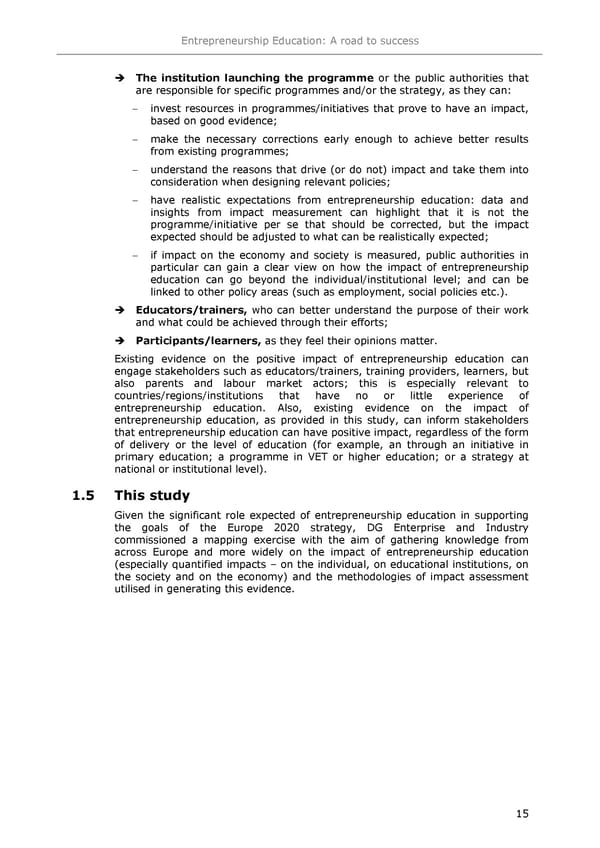Entrepreneurship Education: A road to success The institution launching the programme or the public authorities that are responsible for specific programmes and/or the strategy, as they can: invest resources in programmes/initiatives that prove to have an impact, based on good evidence; make the necessary corrections early enough to achieve better results from existing programmes; understand the reasons that drive (or do not) impact and take them into consideration when designing relevant policies; have realistic expectations from entrepreneurship education: data and insights from impact measurement can highlight that it is not the programme/initiative per se that should be corrected, but the impact expected should be adjusted to what can be realistically expected; if impact on the economy and society is measured, public authorities in particular can gain a clear view on how the impact of entrepreneurship education can go beyond the individual/institutional level; and can be linked to other policy areas (such as employment, social policies etc.). Educators/trainers, who can better understand the purpose of their work and what could be achieved through their efforts; Participants/learners, as they feel their opinions matter. Existing evidence on the positive impact of entrepreneurship education can engage stakeholders such as educators/trainers, training providers, learners, but also parents and labour market actors; this is especially relevant to countries/regions/institutions that have no or little experience of entrepreneurship education. Also, existing evidence on the impact of entrepreneurship education, as provided in this study, can inform stakeholders that entrepreneurship education can have positive impact, regardless of the form of delivery or the level of education (for example, an through an initiative in primary education; a programme in VET or higher education; or a strategy at national or institutional level). 1.5 This study Given the significant role expected of entrepreneurship education in supporting the goals of the Europe 2020 strategy, DG Enterprise and Industry commissioned a mapping exercise with the aim of gathering knowledge from across Europe and more widely on the impact of entrepreneurship education (especially quantified impacts 3 on the individual, on educational institutions, on the society and on the economy) and the methodologies of impact assessment utilised in generating this evidence. 15
 Entrepreneurship Education Page 18 Page 20
Entrepreneurship Education Page 18 Page 20